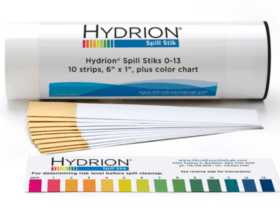Home inspections can be stressful for both homeowners and prospective buyers. A lot can come to light that was either unknown or withheld in an untrustworthy way. A home inspection brings in a professional or multiple professionals who are thoroughly trained in how to find damage or ruin in a house. This skill could mean they’re adept at spotting signs of insects like termites, or that they notice water damage. It depends on what secrets the house and homeowner keep if they’re even aware of the damage.
Here are some ways that these inspections are designed to help buyers.
Check For Problems With Home
The most obvious is that they search your home and property for damage or a likelihood of injury. This search will pay attention to floodplains, attic issues, wood rot, and unstable foundation. There are cases where they find nothing at all, but almost every house has one or two problems. Don’t let these issues scare you away from buying a good home that might need repairs or preventative work.
Find Out The True Value of Home
Instead of waffling back and forth on “should I rent or buy a house‘, look at the real numbers. It’s cheaper in some cities to buy a home and pay a mortgage than to rent one. Regardless of the listing price, it’s essential to find out how much the home is worth. If the seller is overpricing by far, you can use that to bid lower or choose to walk away if you don’t want to catch a deal that poorly. You can research comparable houses in the area, be empowered to find a price that suits what you can afford and that the home is worth.
Help Give The Buyer Leverage for Pricing
Another way this helps with pricing is that you could end up saving money. An inspection costs money upfront, sure, but the information they give you should be looked at as cash. If there are extensive repairs that need to happen, this can be used as leverage to lower the cost or have the seller cover the closing costs. These can average from two to six percent of your home’s value, which means you could be saving a pretty significant amount of money. These savings may allow you to make changes down the road to make your home more centered around you, like adding a pool or updating the yards.
Provide Transparency and Trust In Deal
By bringing in a professional, you can know you’re getting an honest answer from the seller. They’ll be less likely to try to lie to you. This improved trust can make it easier to look past some of these flaws. You can discuss the change you’d like completed before you purchase the home. This purchase is a big decision, so it’s essential to know all of the information possible. An honest seller should be a plus that makes you more likely to want to buy from them. If the home is in as good condition as they’ve represented it, then the price is probably reasonable, and you could be happy in that home.














